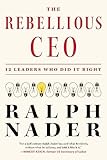“Economists study and analyze poverty in their nice offices, have all the statistics, make all the models, and are convinced that they know everything that you can know about poverty. But they don’t understand poverty.” —Manfred Max-Neef
Way-way too much in the education news for me to crank out one single column. That’s coming up. For now — Just one state gives us a peak into the STATE of affairs for the USA. Cutting Head Start. We are ending as a culture, albeit a long and protracted ending, with so-so much pain for the 80 percent and so-so much glee and gout for the One Percent and their Little Eichmanns. We have no one to blame but the media, politicians, education system (at the top) and the lusty consumerists. At least more and more of us are coming together now through these hit-and-run measures, the so-called “cuts and deaths by a thousand sequesters.” What kumbaya for the poor of us, for the precariate class, for the sliding toward oblivion us in the lower rungs of economic sluices toward the big inevitable muck of disaster. We are all coming together and saying, maybe, “We are all in this together, so, the One Percent, and the point-zero-zero-zero-one percent and the other nineteen percent BE DAMNED. Good riddance!” How and why and where and when, now those are the questions!
Cuts to meals on wheels. Cuts to education. Cuts to Head Start. Cuts to special education programs. Cuts to anything meant for community safety, welfare, health and resilience. We are the underdeveloping nation that Manfred Max-Neef discusses. Read more below!
To get a sense of just how foolish and shortsighted the $85 billion across-the-board sequester cuts are, you don’t have to look any further than Head Start. The federal government’s only pre-K program, Head Start provides comprehensive, high-quality early education and support services to children and their families living in poverty.
All of that adds up to saving money over the long haul. But even before the sequester Head Start was reaching less than half of eligible children in the United States—and only 38 percent in Washington. Now, even fewer children will benefit from the program.
Estimates put the number of slots lost this year alone at 70,000. According to a recent survey by WSA, 68 percent of Washington State’s Head Start providers will be forced to drop children from their classrooms over the next few months as a direct result of sequestration.
“These cuts are happening now,” said Ryan. “A lot of directors have issued lay-off notices to teaching staff and kids are already getting dropped from programs. That’s going to get worse come September. Most of the impact right now is that they are closing programs earlier in the day, or closing earlier in the school year altogether, so families are needing to scramble to find some other place for child care.” Read more: **
According to a new U.S. Department of Education study, “about one in five public schools was considered high poverty in 2011 … up from about to one in eight in 2000.” This followed an earlier study from the department finding that “many high-poverty schools receive less than their fair share of state and local funding … leav(ing) students in high-poverty schools with fewer resources than schools attended by their wealthier peers.”
Firing Line: The Grand Coalition Against Teachers
Out-of-school factors—family characteristics such as income and parents’ education, neighborhood environment, health care, housing stability, and so on—count for twice as much as all in-school factors. In 1966, a groundbreaking government study—the “Coleman Report”—first identified a “one-third in-school factors, two-thirds family characteristics” ratio to explain variations in student achievement. Since then researchers have endlessly tried to refine or refute the findings. Education scholar Richard Rothstein described their results: “No analyst has been able to attribute less than two-thirds of the variation in achievement among schools to the family characteristics of their students.”
From Joanne’s piece: I’ll close with an observation about “reform” by George H. Wood, principal of a school in rural Ohio, from a June 16, 2010 blog post:
For the past eighteen years, I have worked as a high school/middle school principal alongside a dedicated staff and a committed community to improve a school. In that time, we have increased graduation and college-going rates, engaged our students in more internships and college courses, created an advisory system that keeps tabs on all of our students, and developed the highest graduation standards in the state (including a Senior Project and Graduation Portfolio).
But reading the popular press and listening to the chatter from Washington, I have just found out that we are not part of the movement to “reform” schools. You see, we did not do all the stuff that the new “reformers” think is vital to improve our schools. We did not fire the staff, eliminate tenure, or go to pay based on test scores. We did not become a charter school. We did not take away control from a locally elected school board and give it to a mayor. We did not bring in a bunch of two-year short-term teachers.
Nope, we did not do any of these things. Because we knew they would not work.
Scammer Deluxe —
Barack Obama speaking at Kenmore Middle School in Arlington, Virginia on March 14, 2011:
The best economic policy is one that produces more college graduates. And that’s why, for the sake of our children and our economy and America’s future, we’re going to have to do a better job educating every single one of our sons and daughters…But when the quality of a teacher can make or break a child’s education, we’ve got to make sure our certified teachers are also outstanding teachers—teachers who can reach every last child.
Ahh, the poverty president!
Joel Ryan, executive director of the Washington State Association of Head Start & ECEAP (WSA). “The research shows that kids who go through Head Start are more likely to be ready for kindergarten, less likely to need special education services and more likely to graduate from high school.”
“It’s about understanding the whole emotional, mental and cognitive support needed—and helping families understand it too—because the parents are with the kids more than the teachers are,” he said.
Parent Robert Wheeler said that while he has family members he can lean on to provide childcare, he’s seeing how the shortened Head Start day is affecting the well being of other parents and children.
“There are parents that work part-time who have had to cut their hours back,” he said. “And some full-time workers who were eligible for child care programs before and after school, and they’ve had to cut back to part-time. Some have even lost jobs and it’s just a downward spiral.”
Ryan also noted that you can’t isolate Head Start cuts from cuts in other programs—it all adds up to making life far more difficult for low-income families.
Read more: Greg Kaufmann | The Nation
Right Livelihood Award Manfred Max-Neef:
After teaching economics at the University of California (Berkeley) in the 1960s, he served as a Visiting Professor at a number of US and Latin American universities. He has worked on development projects in Latin America for the Pan-American Union, the UN Food and Agriculture Organization and the International Labour Office.
In 1981 he wrote the book for which he is best known, From the Outside Looking In: Experiences in Barefoot Economics, published by the Dag Hammarskjöld Foundation, Sweden. It describes his experiences as an economist attempting to practise ‘economics as if people matter’ among the poor in South America. In the same year he set up in Chile the organisation CEPAUR (Centre for Development Alternatives).
CEPAUR is largely dedicated to the reorientation of development in terms of stimulating local self-reliance and satisfying fundamental human needs. More generally, it advocates a return to the human scale. CEPAUR acts as a clearing-house for information on the revitalisation and development of small and medium-sized urban and rural communities; it researches new tools, strategies and evaluative techniques for such development, assists with projects aiming at greater local self-reliance and disseminates the results of its research and experience.
In Human Scale Development, published in 1987 in Spanish and later in English, Max-Neef and his colleagues at CEPAUR outline a new development paradigm based on a revaluation of human needs. Needs are described as existential (having, doing, being) and as axiological (values) and the things needed to satisfy them are not necessarily dependent upon, or commensurate with, the kinds or quantities of economic goods available in any given society. The book seeks to counter the logic of economics with the ethics of well-being.
He received the National Prize for the Promotion and Defense of Human Rights, Chile, and the Kenneth Boulding Award from the International Society for Ecological Economics in 2008. The Soka University, Japan, bestowed on him the University Award of Highest Honour. He received honorary degrees of the University of Jordan and the Saint Francis University (Loretto, Pennsylvania).
More from Dissent —
Firing Line: The Grand Coalition Against Teachers
Where to Go from Here
With the zealots’ mix of certainty and fervor, ed reformers have made this a wretched time to be a public school teacher. Indeed, fewer and fewer people are interested in trying. In the last seven years, the number of Californians seeking to become teachers dropped 45 percent (California Watch, December 14, 2010). In 2011, due to declining interest, Yale ended both its undergraduate teacher preparation and certification program and its Urban Teaching Initiative, a tuition-free M.A. program for students committed to teaching in New Haven’s public schools. Teachers all over the country—in affluent districts as well as high-poverty schools—are dispirited. In New York City, 50 percent of all new hires leave after five years in the classroom.
Meanwhile, parents worry that obsessive testing is hollowing out the substance of learning; they rightly expect good teaching to offer much more than the largely meaningless higher scores that consume ed-reform thinking. In order to rescue their children’s public schools from state mandates, parents will need to organize themselves in large numbers as allies of teachers. There’s no other way to stop the damage being done.










